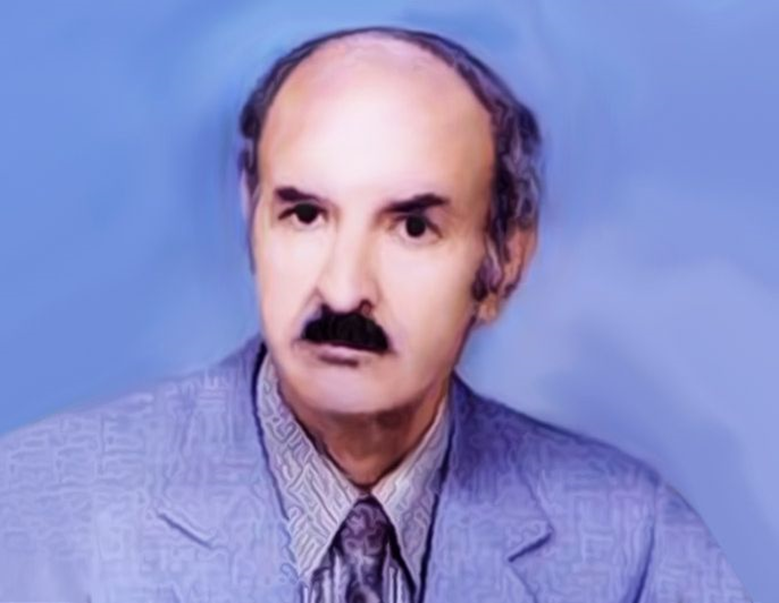Thinker, poet and historian Ali Sidqi Azayko

On this day in 1981, the trial of the late Amazigh thinker, poet, historian, and activist, Ali Sadki Azayku (en amazighe: ⴰⵍⵉ ⵚⴰⴷⵇⵉ ⴰⵣⴰⵢⴽⵓ) began, 194 on charges of harming state security and violating the constitution, after he published an article “For the sake of a true concept of our national culture.” In a magazine “Amazigh” in which he described the Arab migrations to Morocco as an invasion by foreigners, and for that reason he spent a year in prison.
Azaykou is considered the first prisoner of the Amazigh issue and one of the founders of Amazigh thought in contemporary Morocco.

Ali Sedqi Azaykou was born in 1942 in the village of Ikran-Taouingit in the High Atlas, near Ouled Barhiel in the Taroudant province.
Azayko studied primary school in the village of Tafenkoult, completed his secondary studies in the city of Marrakesh, then joined the Faculty of Arts and Human Sciences of Mohammed V University, where he obtained a BA in history in 1968. He graduated in the same year from the Ecole Normale Supérieure as a professor of secondary education.
He joined the Sorbonne University in Paris (1970-1972) and studied social history under the supervision of sociologist Jacques Burke.
In 1988, he obtained a postgraduate diploma in history at the Faculty of Arts and Human Sciences in Rabat with a distinction of very good in the subject “The Expatriate’s Journey, Presentation and Investigation.”

Azaykou was one of the first thinkers and activists to develop an awareness of his Amazigh identity and demanded a return to the Amazigh self and not to deny it.
He founded, with others, the Association for Research and Cultural Exchange in 1967, the Moroccan Association “Knowledge and Culture” in Rabat in 1972, and the magazine “Tiedrin.”
In 1979, he and Mohamed Shafiq and Mohamed Zemmour founded the Amazigh Cultural Association
In 1981, he was arrested and sentenced to one year in prison (1982), as we mentioned above.
A few years after his release from prison, he demanded that Moroccan history be rewritten
Before his death, Azaykou became a member of the Board of Directors of the Royal Institute of Amazigh Culture - which was established by decision of King Mohammed VI - and he was a member of its board of directors, and a prominent researcher within it.
Among his works:
_The book “Examples of Moroccan Geographical and Human Proper Names” (1972),
_A collection of Amazigh poetry in the Arabic script (1989) entitled “Timitar” (The Ticket)
_The collection of “Ezmulen” (Traces of Wounds).
_The book “The History of Morocco or Possible Interpretations” published in 2002,
_The book “Intellectual Battles over the Amazigh Language.”
_Islam and the Amazigh in 2002
Ali Sedqi Azaykou died after a chronic illness on September 10, 2004, and was buried in his hometown near the city of Taroudant.
Source: websites

